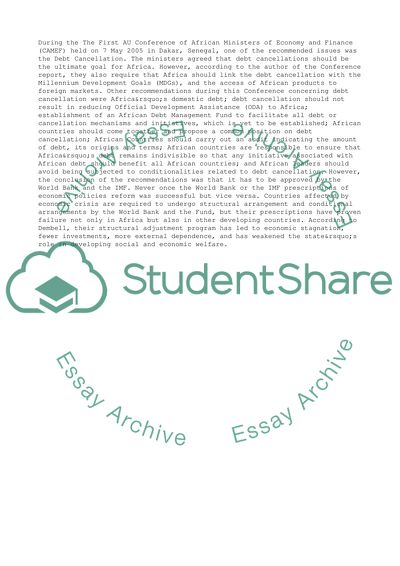Cite this document
(“Debt crisis in Africa Essay Example | Topics and Well Written Essays - 2250 words”, n.d.)
Debt crisis in Africa Essay Example | Topics and Well Written Essays - 2250 words. Retrieved from https://studentshare.org/business/1539950-debt-crisis-in-africa-is-debt-cancellation-the-answer-what-are-the-implications-of-debt-cancellation
Debt crisis in Africa Essay Example | Topics and Well Written Essays - 2250 words. Retrieved from https://studentshare.org/business/1539950-debt-crisis-in-africa-is-debt-cancellation-the-answer-what-are-the-implications-of-debt-cancellation
(Debt Crisis in Africa Essay Example | Topics and Well Written Essays - 2250 Words)
Debt Crisis in Africa Essay Example | Topics and Well Written Essays - 2250 Words. https://studentshare.org/business/1539950-debt-crisis-in-africa-is-debt-cancellation-the-answer-what-are-the-implications-of-debt-cancellation.
Debt Crisis in Africa Essay Example | Topics and Well Written Essays - 2250 Words. https://studentshare.org/business/1539950-debt-crisis-in-africa-is-debt-cancellation-the-answer-what-are-the-implications-of-debt-cancellation.
“Debt Crisis in Africa Essay Example | Topics and Well Written Essays - 2250 Words”, n.d. https://studentshare.org/business/1539950-debt-crisis-in-africa-is-debt-cancellation-the-answer-what-are-the-implications-of-debt-cancellation.


